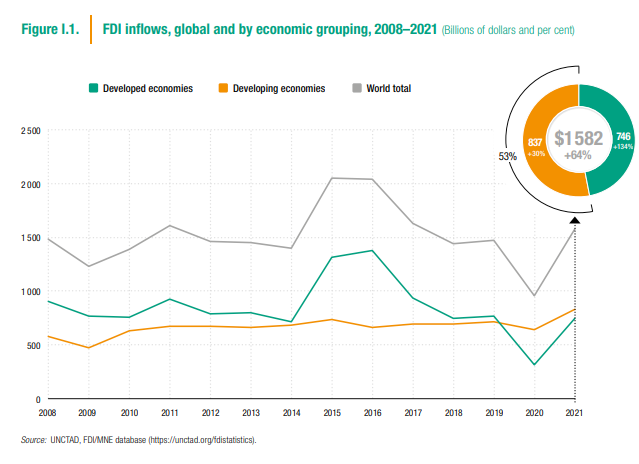Malawi warned on FDIs inflows
Economics professor Ronald Mangani has warned authorities to tread carefully on foreign direct investments (FDIs), saying despite being the preferred mode of investment, some of them fuel illicit financial flows.
In his presentation during the Reserve Bank of Malawi’s (RBM) Monetary Policy Conference in Lilongwe on Thursday, he argued that by promoting FDIs without adequate regard for the risks associated with it, the country is not only stifling domestic investment, but also losing out on revenue.

Mangani observed that a combination of both domestic and FDI is what the country needs because the arrangement will ensure knowledge transfer in the process.
In his presentation titled ‘Towards more resilient economies: The role of momentary and exchange rate policy’, the former Secretary to the Treasury faulted the country’s current monetary policy, saying it labels domestic capital as bad money, calling it excess liquidity.
He said: “Our preference of FDI is so in spite of the fact there are worsening illicit financial flows, which are illegal movements of money or capital from one country to another that are illegally earned, transferred.
“Illicit financial inflows are heightened by foreign direct investment and if we open up the extractive sector more, you will expect these to be more.”
Lately, there has been increasing evidence that African economies are leaking buckets of illicit financial flows mostly perpetrated by multinational corporations.
According to Mangani, high illiciti financial flows lead to tax base erosion, low domestic revenues and high government borrowing.
He said by eroding investment capital, illicit financial flows also dampen growth and lead to low taxes and high government borrowing.
Meanwhile, United Nations conference on Trade and Development data shows that Africa is losing $88.6 billion through illicit financial flows annually.
Other indications are that Africa’s loss through illicit financia flows is generally higher than official development assistance and official aid.
In his remarks, economist and former RBM governor Elias Ngalande, who was a panellist during Mangani’s presentation, said the country should institute proper systems to balance and make the most of FDIs.
He said: “We must understand that as we allow more FDIs to come in, it will come with a lot of those illicit flows, perhaps worsening the situation we are in; hence, we must have systems for dealing with it.
“Some of the things that happen in this country pass under our nose. We must indeed look at such things to ensure that we deal with downside risks that come along with this.”
Minister of Trade and Industry Mark Katsonga Phiri is on record as having said that government is committed to reducing IFFs.
He said suggestions to curb IFFs will always form policy directions that will help government curb the malpractice
The 2021 IFFsVulnerability Tracker by the Tax Justice Network estimates that Malawi loses $60 million (about K62 billion) every year to global tax abuse.
The amount is approximately 4.9 percent of tax revenue, which is higher than the regional average tax revenue loss of 4.3 percent and the global average revenue loss of 2.9 percent.
The tracker also shows that $56 million is lost due to tax abuse committed by multinational corporations, hence the much hyped FDIs.





